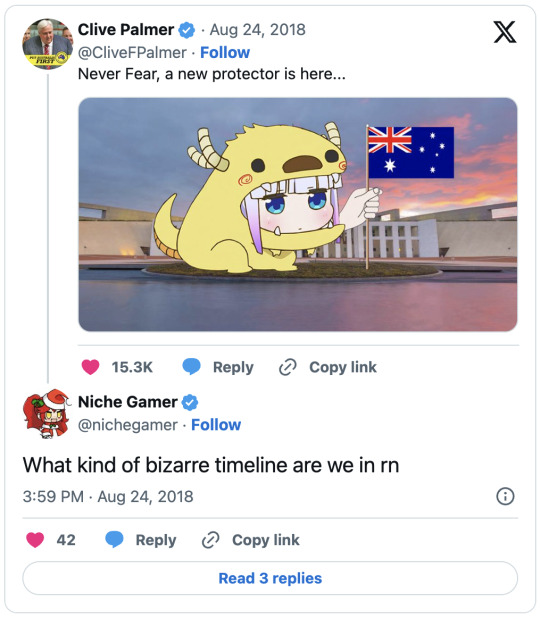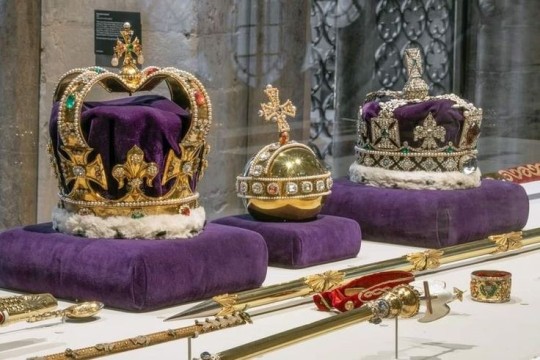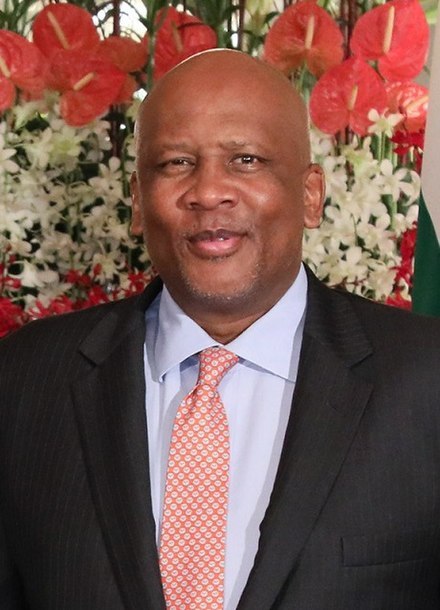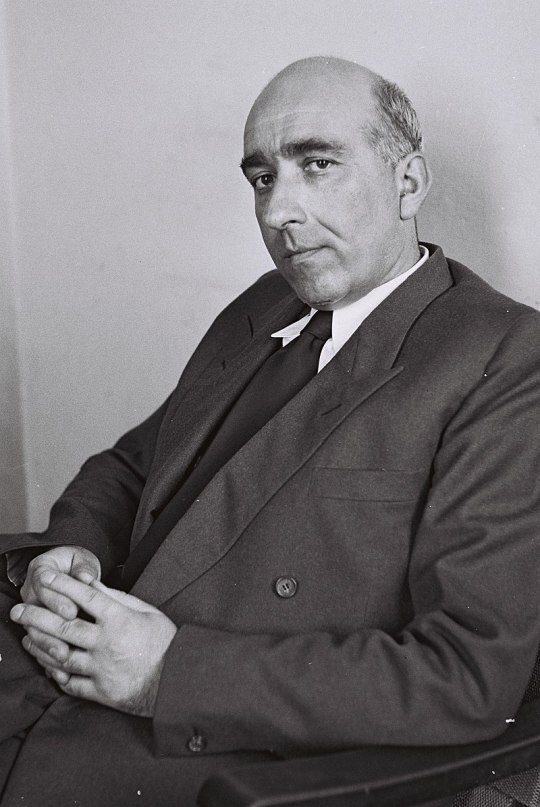#Role of parliament
Explore tagged Tumblr posts
Text
https://studypoliticalsciencewithus.blogspot.com/2023/12/peoples-house-decoding-significance-of.html?m=1
"People's House: Decoding the Significance of the Indian Parliament"
#bookmarking#Indian parliament#Political science#Sociology#Role of parliament#Role of loksabha and rajyasabha#Structure of loksabha and rajyasabha#Powers of parliament
0 notes
Text
Meet New Zealand's Hana-Rawhiti Kareariki Maipi-Clarke. She's an MP in NZ's parliament. Her haka is in protest of a bill that would have taken rights afforded to the tribes and applied them to all New Zealanders (defeating the purpose of the Treaty of Waitangi).
She is 22 years old, and this isn't the first time she's done it.
🫴🏽✨👑✨
#i've listened to this now about 30x#there are longer versions but tmz's had the best sound amplification on HER voice for me#hana-rawhiti kareariki maipi-clarke#māori#te reo māori#treaty of waitangi#new zealand parliament#new zealand#the best of#gen z#role models#for protest#political#political voices#powerful women#inspiring women#off topic#but i will probably reference this in a future post#btw her birthday is in september...too
20 notes
·
View notes
Text
macron just. bypassed the french parliament YET AGAIN to pass the law adding two years to the minimum age for retirement.
it's a thing that happened.
#FUCK HIM#FUCK THIS GOVERNMENT#for real the parliament should vote a motion of no confidence and make the government resign#bc what the fuck#how is this a democracy#he uses the 49.3 loophole way too much to even pretend not to be authoritarian#he bypassed the parliament about a dozen times if not more#whereas previous presidents almost never used the 49.3#also what's the point of having a constitutionnal right to demonstrate and strike if the government never takes notice of it#the country could be on fire and macron still would not care#this is not normal#i am BEGGING members of parliament of all sides to come together and show they're not puppets that can be silenced at the president's will#if they don't revoke the government for *this* it's setting a very dangerous precedent#all presidents will be able to bypass parliament as they please knowing that they will be no consequences#it's not even about whether you agree with his policies or not tbh#it's about the president overstepping his role#upthebaguette
107 notes
·
View notes
Text
"...Walsingham, the monastic author of the St. Albans Chronicle, was by far [Alice Perrers'] harshest contemporary critic, who in his venom has (somewhat ironically) left us with the longest and most detailed account of her background and personality, her influence as Edward’s mistress, and her subsequent trial. He describes Alice as a shameless lowborn meretrix (a word variously translated as mistress, whore, or harlot), who “brought almost universal dishonour upon the king’s reputation […] and defiled virtually the whole kingdom of England with her disgraceful insolence.” Although Walsingham was not always accurate and, specifically in this case, clearly heavily biased against Alice, he nevertheless provides a truly contemporary account, and his importance as a source should not be underestimated. Likewise, the anonymous monk of St. Mary’s York recorded that in the Good Parliament the Commons (represented by their speaker, Sir Peter de la Mare) stated that it “would be of great gain to the kingdom to remove the said dame [Alice] from the presence of the king both as a matter of conscious and of the ill prosecution of the war.” During the same assembly, the bishop of Rochester, Thomas Brinton, preached from St. Paul’s Cross that “it is not fitting nor safe for all the keys of the kingdom to hang from the belt of one wife.” Although the word wife (uxoris) is used, it is widely accepted that this is a reference to Alice.”
-Laura Tompkins, '"Edward III's Gold-Digging Mistress": Alice Perrers, Gender, and Financial Power at the English Royal Court, 1360-1377", "Women and Economic Power in Premodern Courts" (edited by Cathleen Sarti). Italics by me.
#alice perrers#historicwomendaily#my post#edward iii#@ anon who asked me how much faith should we put in Walsingham's account of Alice#Walsingham is undoubtedly vicious and prejudiced (and thus not always accurate - perhaps deliberately so) where Alice is concerned#But he is also a direct contemporary eyewitness and is thus invaluable as a source. His importance can never be emphasized enough.#More importantly however - the image of Alice as a transgressive woman with improper influence who 'hijacked' the kingdom#is not merely painted by Walsingham or limited to his account#It's how these other sources - the monk at St. Mary's and the Bishop of Rochester - depicted her as well#('it is not fitting nor safe for all the keys of the kingdom to hang from the belt of one wife' is pretty telling in more ways than one)#as did contemporary literature of the time like Chaucer's 'Wife of Bath' and William Langland's Lady Meed in 'Piers Plowman'#the whole point of the Good Parliament & the Parliament after Edward III's death was to simultaneously restrict her influence & punish her#So...I'd say Walsingham's image of Alice (unfortunately) tracks with how she was widely perceived at the time#Of course that doesn't mean that this image shouldn't be reassessed and recontextualized#Misogyny and classism very demonstrably played a huge role in how Alice was regarded by contemporaries#Ormrod has also pointed out that no matter the extent of Alice's influence she would ultimately always be limited by the practical#reality of being a woman and a commoner#'Her sex and status simply did not allow her the regular and acknowledged access to power enjoyed by politically ambitious male favourites'#It is not impossible that she was 'a symbol rather than a cause' of the crisis in Edward III's late reign#And of course it's true that WERE people who defended her publicly and privately even after Edward's death as Walsingham himself admits#She can't have been as universally detested as most people think#(we should also consider Walsingham's deriding comment about her 'seductiveness' ie: she was probably very witty and charismatic)#But ofc none of this change the fact that Walsingham's image of Alice's 'impropriety' transgressiveness was a widespread one#Nor does it change the fact that this image was fundamentally rooted in the very real and impressive power she had#Alice WAS proactive and acquisitive and wildly influential (Edward III listened to her over several of his own children ffs)#She DID have more power and visibility than any other royal mistress in medieval England#She DOES seem to have acted in ways that would have been perceived as 'inverting queenship'#*That's okay*. Alice's actions & image should absolutely be recontextualized and given more sympathy than they are#but I have absolutely no intention of diminishing or downplaying them either. That's why I love her so much.
8 notes
·
View notes
Note
It’s incredible how everything I learn about Irish, Welsh and Manx history makes me wish the entirety of the parliament would collapse into a sinkhole and flood from the Thames with all those cunts in it and that Buckingham would collapse with that entire lineage of shit inside
yeah basically 👍
#i will say that while this is true and i will always back sinking parliament#i feel that nationalist histories of the constituent nations of the UK (or former constituent nations)#often underplay their own colonial role in the british empire#which doesn't undermine the horrors endured but it is another aspect of history that i wish we paid more attention to#that web of complicity#e.g. irish and welsh soldiers in the british imperial army#(and don't talk to me about 'they were all anglo-irish' bc it's not fucking true)#although the last time i talked about this on my blog someone got really mad at me for calling the irish in america colonisers#like yes im aware that they were fleeing the famine and had little other choice#i am not judging them#but the fact is that they then proceeded to live on stolen land#im not making a moral judgement i am just noting that there is a complicated history#“anon please ignore the rambling im doing in the tags here! it's not actually aimed at you”
6 notes
·
View notes
Text

FINE, you get another go at the time machine and the ability to prevent one birth (or commit a murder up to you), don't worry about the butterfly effect, we want the butterfly effect that's part of the point. Your actions will prevent them from ever rising to prominence. Original poll here There may be a face off poll at the end. Hitler still isn't an option because we'd all chose to kill him.
Am gonna go Pontius Pilate and say my hands are cleaned of this one. All of the below are nominees.
#So Hitler’s not an option so I propose Cromwell (prepare for a history nerd rant a bit)#not for that banning Christmas stuff or because I like the monarchy#But because he successfully ‘cleared’ huge parts of Ireland of the native Irish to make room for colonisers (just look at the map)#and yes this involved massacres and what would now be considered war crimes#It was attempted ethnic cleansing and had a huge impact for the rest of our history#Drogheda was an example of one of larger massacres of mostly civilians#I feel like a lot of the historical awareness in relation to him (particularly in England) focuses on his role in parliament#This tends to go forgotten when it really shouldn’t#It’s estimated he killed somewhere between 200000 and 600000 in a population of 2 million#And shipped 50000 abroad as indentured servants (NOT as slaves#the indenture expired and did not include children for one thing)#Cannot emphasise the slave/indenture difference enough. Neither were right or moral but it’s on very different scales and can’t be equated
3K notes
·
View notes
Text
People do not realize that when we say Israel is a settler-colonial state, we mean it was literally devised in junction with European imperialism around the turn of the century.
Political Zionism was founded by Theodore Herzl. Originally, Zionists were not specifically interested in the land of Palestine as a colonial project. In fact, Herzl was debating making Argentina the focus of mass Zionist migration, which is quite ironic considering Argentina's colonial and Aryanist past. British-controlled Uganda was also offered as a possibility by Joseph Chamberlain, a Conservative imperialist.
To encourage mass Jewish migration to Palestine, he worked with the British, who had recently drove the Ottoman Empire out of the Levant, and now boasted political dominance in the region, thanks to the Sykes–Picot Agreement between the UK, France, Italy, and Russia which covertly authorized British influence in Palestine, which had become a target of colonial expansion. He specifically wished to collaborate with Cecil Rhodes, a British imperialist who played a lead role in colonizing Zimbabwe and Zambia, and later took inspiration from his time spent extracting wealth from Africa as the founder of mining conglomerate the British South Africa Company.
Herzl’s personal goals for Zionism were colonial. He said in a letter to Rhodes:
“You are being invited to help make history. It doesn’t involve Africa, but a piece of Asia Minor; not Englishmen but Jews […] How, then, do I happen to turn to you since this is an out-of-the-way matter for you? How indeed? Because it is something colonial […] I […] have examined this plan and found it correct and practicable. It is a plan full of culture, excellent for the group of people for whom it is directly designed, and quite good for England, for Greater Britain [...]”
At that time, Palestine was predominately populated with Arab Muslims and Christians, as well as Arab Jews (Old Yishuv) and Druze. Jews made up around 6% of the population. The Ottoman government specifically released a manifesto at the start of Zionist migration condemning the colonization, stating:
“[Jews] among us […] who have been living in our province since before the war; they are as we are, and their loyalties are our own.”
The Balfour Declaration of 1917 on behalf of parliament, officially established the British Mandate of Palestine, sowing the seeds for the modern state of Israel, by means of the UK's ongoing occupation of the region.
Zionism was never about promoting Jewish culture or safety; it has always been tied up in Western (settler-)colonial expansion. !من النهر إلى البحر
#palestine#since you guys are being obtuse😔#1) the ottoman empire was bad#2) herzl is obviously not the only representative of zionism#3) both zionism and anti zionism have complex discourses within them#4) jewish people are not a monolith
13K notes
·
View notes
Text


So a bit of background first for our international followers: Clive Palmer is one of Australia's many mining billionaires who like to meddle in our country's politics, and as such he is utterly despised by all of Australia.
Picture for context:

He is most commonly known online by the title "Fatty McFuckhead", (problematic as it may be) because he tried to sue a youtuber for $500,000 for calling him that - and he lost. So the name stuck.

Up until his most recent foray into parliament, the legally certified Fuckhead was best known for his batshit business ventures, such as attempting to build "The Titanic 2" (failed) and trying to build a dinosaur theme park (also failed, but at least nobody got eaten by a T-Rex in this one).
For a very long time Clive played the role of sugar daddy to Australia's largest conservative party, the ironically named Liberal Party, until they had a falling out in 2012 after Clive claimed there was too much money influencing politics (lol), at which point he started his own party, days after saying he totally quit and wasn't fired and he only left because he didn't want to be a distraction.
His initial run at parliament was actually kinda successful, with Palmer's group winning 4 seats, plus a member from the "Motoring Enthusiasts Party" joined them too after accidentally getting elected and not knowing what the fuck to do.
Despite this initial success however, Palmer's party (which ran on basically no platform other than "I'm rich") hit an iceberg (titanic 2 achieved) and seven elected state and federal politicians quit within the first year.

By the time the next federal election rolled around, only one Palmer party candidate was still running for re-election. The most successful of this group - Jaquie Lambie - quit to sit as an independant and is still in parliament today.
Here she is with a painting of herself strangling Clive (she sells signed copies of this)

And here the senator is posting about liking sausage:

Anyway, we're getting to the point: which is the yellow posters. By the 2016 election, just two years after forming, the party was in complete freefall. It won just 0.01% of the vote at their second election, and it was announced shortly after that Clive was quitting politics and the party was being shut down. Australia breathed a sigh of relief.
It was, of course, short lived.
Clive, in desperate need of attention, restarted the party for the 2019 election, fielding candidates in every seat and spending $60 million in advertising in an attempt to win votes.
Every single candidate lost.
It was in this campaign however that Australia really started to fall out of love with Palmer, because most of that $60 million went towards putting up the world's least compelling marketing billboards on almost every single free space in the country.
For a good six months this was basically the only thing you would see in Australia if you went outside:

Clearly Graphic design is his passion. And yes, the genius did just straight up try and copy Trump's homework while changing a few words, hoping nobody would notice.
Very quickly these all got vandalised and it seemed the ad companies didn't care enough to replace them.



We could go on posting examples, there are thousands, but the best is definitely the one Ikea put up shortly after Clive lost the election:

In 2022, Clive's party contested the election AGAIN, this time also opting to send millions on spam text messages to every person in Australia begging for people to vote for him, as well as buying almost every youtube ad for a year, at the cost of $100 million.
He won a whopping one seat.
During this election Clive ran on an anti-lockdown, anti-vax platform with the slogan "freedom, freedom, freedom". That message, however, was slightly undermined when his goons, dressed in 'Freedom!' shirts, made national news for trying to beat up a protester who turned up at a rally dressed as an annoying text message, shouting "pay your workers" at Clive.

As if that wasn't bad enough, at another rally Clive knocked himself unconscious while trying to jump up on stage, and then a few weeks later was rushed to hospital with covid, while his anti-vax ads were still in regular rotation on TV, at which point it was also leaked to the press that Palmer had been alledgedly trying to buy Hitler's car.
Utterly humiliated, the party deregistered again shortly after the election.
Can't wait until he runs again in 2025.
Anyway, on the other "Clive tweeting Miss Kobayashi's Dragon" thing, we have no idea what that means but here's a screencap:

5K notes
·
View notes
Quote
Though I feel that a woman's life is only half a life, as she cannot have a seat in Parliament.
Anthony Trollope, from Phineas Finn
#sad#victorian era#patriarchy#gender roles#women#oppression#parliament#quotes#lit#words#excerpts#quote#literature#classics#anthony trollope#phineas finn
1 note
·
View note
Note
Ooh, I have something to add that makes me laugh every time I think about it. MPs here actually can't just resign when they feel like it, at least not according to our formal laws. What they CAN do is accept a profitable role serving the monarchy. This automatically disqualifies them from serving as an MP, so any MP accepting one of these roles is resigning as an MP by default.
Except they can't invent one of those roles every time an MP wants to step down, because giving them another job just because they don't want to be an MP would be unfair to the rest of the country. And also this is an old rule, and since 1975 most of those roles actually don't disqualify you from being an MP. So we have two ceremonial roles which have deliberately been kept on the list of roles disqualifying someone from being an MP (Steward and Bailiff of the Chiltern Hundreds, and Steward and Bailiff of the Manor of Northstead).
These roles have been functionally useless and kept in use only for the purpose of disqualifying MPs since the 1600s. We alternate between them. It's a whole pantomime.
Can mp's in uk just resign like that? Asking because in finland mp's need eduskunta's(=parlament's) permission to resign(and are unlikely to get that permission without very good reason).
Lol, yeah, they can. I'm as amazed as you. But it's like any other job, if you don't want it anymore you can just... leave
#sometimes i remember exactly how this country got into such a state#and looking at the wikipedia pages for those roles#is usually how i remind myself#also fun fact!#it has been five days Nadine Dorries 'resigned'#but as of right now#she hasn't accepted one of these offices#so she is still an MP and could cause real issues in parliament#i really have my fingers crossed for that outcome
110 notes
·
View notes
Text
'GERMANY'S LOST PLOT OVER GAZA
Why can't Germany or any country in the EU call out Israel's genocide in Gaza? Irish MEP Mick Wallace asks the question as he rips into the bloc with this thumping speech at the European Parliament.
After rattling off the grim Palestinian death toll, he wonders how Berlin can stay silent, given its role in World War Two's holocaust and its little-known genocide in Africa. That saw over 75% of Namibia's Herero and Nama people killed, with their skulls shipped to Europe. Historians regard it as the first genocide of the 20th century.
Listen to Wallace's fiery soundbite. There were a few claps but mainly silence afterwards. Says it all.
#Germany#palestine#gaza#free palestine#israel#jerusalem#فلسطين#free gaza#israel is a terrorist state#i stand with palestine#eu#europe#Namibia#berlin#wwii#israel is committing genocide#israeli war crimes
2K notes
·
View notes
Text
Fantasy Guide to Constitutional Monarchy

As there are many breeds of government, there are equally as many species of monarchy. Today, we will be learning about the concept of constitutional monarchy and how we can write them within our WIPs.
What is a Constitutional Monarchy?

Constitutional Monarchy is a monarchy that is bound by a country's constitution, where the monarch doesn't rule but they reign. The government acts and runs in the monarch's name, at their pleasure and owes their allegiance to the Crown but they are the decision-makers.
The Power and the Glory

The monarch doesn't have the power to rule but as Head of State, they still retain certain powers and responsibilities.
The monarch has the right to:
Warn a Prime Minister/Chancellor against a decision.
Be consulted about all state matters, crisis and news.
Advise and encourage.
The monarch has the responsibility to:
Be impartial, no matter their true feelings
Support the Prime Minister/Chancellor in their efforts to lead the country
The monarch usually retains power in the form of the Head of the Armed Forces (though most can't declare war), has the power to dissolve a sitting government, has the power to sign bills and legislation into law, by the opening of Parliament and recieves diplomats and ambassadors.
Why a Constitutional Monarchy?

You might be asking, why would a monarch agree to all these rules and limits? They are the King/Queen, no? Shouldn't they have all the power? Easy answer, they want to maintain both their power and their heads. Most modern monarchies have ceded to be bound by constitution because autocracies come with as many dangers as they come with benefits. A constitutional monarchy is often chosen to protect the monarchy, ensure it's longevity, appease the public and modernise to fit with changing opinions. The monarchy that doesn't adapt, doesn't survive. If a monarch truly believes in the role of monarchy and their duty, they would do well to consider how much they are willing to sacrifice in its name. It also provides a unifying figure for the country to look up to without the divide of political opinion and creed.
Constitutional Monarchies Across the World

The UK: The monarch's role is ceremonial, they open Parliament, grant Royal approval to bills and meet with the Prime Minister to be informed of the government's doings.
Sweden: The Swedish monarchy is symbolic only.
Japan: The Emperor of Japan has no governing powers, he recieves foreign dignitaries, participates in traditional events and rituals.
Spain: The Spanish monarchy has the power to dissolve government, summon government and appoint the Prime Minister.
Norway: Norway's monarchy is heavily symbolic but the monarch resides over the Council of State, signs official documents and undertakes state visits.
Belgium: The Belgian monarchy is also ceremonial but has the power to appoint the formateur who leads coalition negotiations, signs laws but these acts must require the signature of a government minister.
The Netherlands: The Dutch monarch has a ceremonial role, with the Prime Minister and Parliament holding political power. The monarch’s duties include signing bills into law and representing the country at official events
Thailand: The Thai monarch has a cultural and ceremonial role but politics is the business of the elected government.
Monaco: The Principality of Monaco is an exceptional version of a constitutional monarchy. While the Prince is bound by the constitution, he had the power to appoint the Minister of State and the Government Council. These bodies are directly accountable to the Prince. The Prince has the right to propose laws to the National Council, veto laws and formally enacts the laws approved by the National Council.
Denmark: The monarch appoints the Prime Minister who leads Folketing, they sign all acts passed by the government which must be countersigned by a Cabinet Minister and participates in state ceremonies.
Lesotho: This monarchy is ceremonial too but the King has the power to appoint the Prime Minister and other officials (on governmental advice).
#See I'm still alive#Sorta#Fantasy Guide to Constitutional Monarchy#Fantasy Guide#Constitutional Monarchy#Writing royalty#Writing guide#Writing reference#Writing resources#Writing resource#Writers reference#Writing help#writers of tumblr#Writeblr#writeblr community#Royalty#Writing nobility#writeblr#writing#writer#writer's problems
307 notes
·
View notes
Text
Happy Pride month to all Jews and our true allies.

On this occasion, as someone who used to volunteer for the Jerusalem Open House (the gay community center) let me offer you a bit of info about our country's LGBTQ history (and correct some anti-Israel distortions).
This is Chaim (Herman) Cohen.

He was born in Germany in 1911, and came to Israel in 1930, to study torah at a yeshiva here. Inspired by his Jewish studies, he decided to turn to the study of law, returning to Germany for that goal and to get married. In 1933, with the rise of the Nazis to power in Germany, he decided to move to Israel permanently. In that sense, he's considered a refugee and Holocaust survivor. His younger brother Leo was murdered by the Nazis.
In 1950, he was appointed Israel's attorney general. In this role, he came across an anti-sodomy law passed by the British Mandate in 1936 (which prohibited all oral and anal sex, including between two men), and which the State of Israel automatically inherited once it was founded in 1948 (source in Hebrew). First he wanted to cancel it, but his jurisdiction fell short of that. As it was within his authority to instruct the Israeli police and state prosecution to ignore it, he did so in 1953. He explained his instruction:
"I thought it was my duty not to uphold a law, which I saw as immoral. [...] And if you should ask, in what is the immorality of the law prohibiting intercourse between men, I will reply to you that such a law against any consenting and private contact between adults contradicts the freedom of man over his own body, and depriving this freedom is a grave infringement against one of the basic human rights."
For comparison's sake, in March 1952, Alan Turing (who saved countless lives for the UK and the allies during WWII) was brought to trial for homosexual consensual private acts, was convicted, and his security clearance was revoked.
In 1978, a special committee of the Knesset (Israel's parliament) recommended several changes to laws addressing various sexual acts, including a recommendation to cancel this anti-sodomy law. In 1980, Israel's first right wing government, under the leadership of Prime Minister Menachem Begin, accepted the committee's recommendations with a corresponding bill (which eventually didn't pass). The bill was presented a second time in 1986, and was passed into law in 1988, decriminalizing same-sex intercourse in Israel (source in Hebrew).
For comparison's sake, in 1990, there were still over 110 jurisdictions in the world criminalizing homosexuality in the world. In the 2020's, RIGHT NOW, there are over 60 that still do.

This is Dr. Doron Maizel (may his memory be a blessing) on the left, with his partner Adir Steiner.

Doron was an army doctor. He was married to a woman with whom he had 3 daughters, before coming out to her in the late 1970's, getting a divorce and eventually openly moving in with his partner Adir. They were together since 1983. Being open about his sexual orientation meant that while Doron was allowed to serve, the same notion that gay men are a security threat (which was applied to Alan Turing), and therefore can't be allowed to serve in top/secret posts in the army, was to stop the promotion that he was about to get. Doron went to visit Ariel Sharon (at the time, Israel's right wing Security Minister, who's in charge of the army) in the latter's private home. IDK what was said in that meeting, but after that, Adir underwent the security check that all partners of a high ranking army officer do, and then Doron got his promotion. When Doron passed away in 1991 from cancer, Adir demanded to be and was recognized as an army widower. Doron's official army commemoration page states, "Left behind a mother, three daughters, a brother and a boyfriend."
Here's Adir with Doron's picture during a 2012 interview:

In 1993, the army order that were meant to prevent Doron and other gay soldiers from serving in certain posts was officially canceled. In 1999, a soldier born as male asked to serve as a woman, because that's what she actually was (this would have made this soldier's service shorter, and in that sense "cost" the army). The request was accepted, and since then, trans soldiers serve in the gender they identify with.
The story of Israel's LGBTQ rights isn't only glitter and fairies. Just like I can talk about a lot of progress that the state made in equalizing our rights in many domains (because I have), I could also talk about the rights we still don't have (because I've done that, too). The situation here isn't perfect (though as far as I'm aware, it isn't anywhere in the world, there are at least a few rights denied to the queer community in every country I know of). But when I look at our history, I feel like Israel isn't just one of the more queer-friendly countries in the world, it was also at certain moments at the very forefront of the struggle to recognizing queer people as deserving of equal treatment.
Which is maybe the most instinctual reason for my fury at the form of the Israel's demonization using the false notion of "pink washing." It is DERANGED to think Chaim Cohen, in 1953, gave his pro-gay instruction in relation to an occupation that Israel wasn't being blamed of until after the Six Day War in 1967, and which didn't gain attention from the regular people (as opposed to foreign politicians, who didn't give a shit about Israel's record on gay rights) until the Derben Conference in 2000. Not to mention how the idea that having a good gay rights record is something a country can brag about is probably even younger than that conference.
The pink washing accusation is de-humanizing. It suggests that it can't be that Israelis simply have a set of values which happens to align with the west's when it comes to the gay community (or women's rights, or ecological awareness, or freedom of speech, or any of the other positives Israel has, which position it high in the Freedom Index, and which anti-Israel activists label "washing" with one color or another). No, the history of these fields in the Jewish state is all about what non-Jews will say about us! It's like you can't fathom that we have an existence of our own, and minds of our own, and desires and wants and struggles of our own, and not everything is centered about what you think of us.
And the source of this self-centered thinking seems to connect with an inability to accept the Jewish state as anything other than the ultimate evil. Because Israel has to be the supervillain of the story, then it can't have a single positive. Everything about it has to be black, otherwise that challenges the black and white narrative that's been developed to demonize the Jewish state. So if it is revealed that there's any domain in which Israel is actually doing good things, reflecting a respect for human rights or a closeness to the values that the anti-Israel crowd claims to uphold, then it must be just a cover up for how Israel treats the Palestinians.
Essentially, the pink/purple/green/whatever washing accusations are as insane and antisemitic, just like claiming that Jews have won so many Nobel Prizes (a reflection of how much our people have benefited humanity) to distract the world from all the non-Jewish kids we kill to use their blood to bake Passover matzos.
But it's actually worse. Because in the process of demonizing Israel, Israeli Arab and Palestinian queers get thrown under the bus, too. As a gay activist, I'm familiar with so many gay and trans Israeli Arabs who get to have a good life thanks to Israel's good gay rights record, who are aware that if the anti-Israel crowd is successful in de-legitimizing and destroying this state, they're fucked as well. I know a lot of gay and trans Palestinians, who only catch a break when they come to the Jerusalem Open House, or generally to Israel, the only place where they can be themselves safely. I know so many queer Palestinians who are scared for their lives because of the violent intolerance of their own families, society and governments. And all the western countries from which the anti-Israel people come from refuse them entry as refugees persecuted for their sexual orientation (yes, I have gay Palestinian friends who have tried, only to be turned down by country after country, no matter how "liberal" or "pro-Palestinian" they officially claim to be).

Meanwhile, gay Palestinians can get temporary asylum in Israel (please don't tell me it's "pink washing" again, when no one from the anti-Israel crowd will even acknowledge this fact) if they fear for their lives, it's just not a proper solution, because just like Palestinian terrorists can get into Israel, carry out an attack and murder innocent civilians, Palestinian homophobes can get inside as well, and murder the queer people who had fled here.

And just to make reality a tad more complex, you know how for the anti-Israel crowd, the worst of the worst of Israeli society, are the religious ("Fanatic! Extremist! Violent!") settlers? I know of more than one case where those religious settlers are the ones who are helping gay Palestinians, but here's one that made it into the Israeli news.

Life is just not black and white, human nature is complex, Israel is a country where human beings are more than just their stance on the conflict and whether foreigners agree with it or not, and the "pink washing accusation" black and white washes all our colors away, trying to reduce us into caricatures that fit into their simplistic, reductive narrative, so they can go on playing "white/western/outsider savior" to the "poor Palestinians" without actually caring about many of the poorest, most marginalized ones.
This vid isn't a representation of all gay Israeli Arabs, but it's def a voice you will not see acknowledged on the anti-Israel side:
Happy Pride to everyone seeing us, all of us, Israelis and Palestinians, queer and straight, with all of our humanity and complexity!
(for all of my updates and ask replies regarding Israel, click here)
#israel#israeli#israel news#israel under attack#israel under fire#israelunderattack#terrorism#anti terrorism#antisemitism#hamas#antisemitic#antisemites#jews#jew#judaism#jumblr#frumblr#jewish
350 notes
·
View notes
Text
anyway i need you guys to imagine that you leave the office on friday expecting a parliament cabinet shuffle and an economic report. these are regular occurrences and not a deep cause for concern. it's like a week before your holiday break. you come back on monday to learn that the finance minister who is also the deputy prime minister resigned over twitter. other cabinet members are crying like she died saying how she was "a good friend" and "will be missed". part of the reason why she resigned is because the only country you share a border with, who has an infinitely larger economy than you, is marking up imports from your country by 25% because the guy over there hates immigrants and wants to get rid of them but is mad that they go to your country instead. you learn that instead of building a plan for how to financially cope with a 25% tariff on everything you export to your largest trading partner, parliament instead has been scrapping GST and drafting cheques to its citizens. you also learn that ahead of the cabinet shuffle, the prime minister told his finance minister, who is also the deputy, that she would be removed from a very central and important role that she is generally seen as good at and competent in and instead placed at the head of Ministry of the Oxford Comma where her job will be to make sure all official correspondence abides by and correctly uses the oxford comma. all three of the other major parties are yelling for the prime minister to resign. some politician from out west smirks and says that she doesn't subscribe to ottawa gossip but had heard rumours over the weekend that the deputy was planning to resign. the economic report gets released and states that your government is $20B further into debt than it was supposed to be. people are speculating that the finance minister, who is also the deputy, planned this resignation a long time ago to distance herself from the prime minister because she plans to run in the next election. you go the entire day waiting for the prime minister to say something about this but all he does is huddle to whisper with the rest of his party. that evening he delivers a speech at a fundraiser. all he says is "j'adore canada :) j'adore canadiens :)". it's a week before your holiday break. you have to reply to all these emails.
101 notes
·
View notes
Text
I wanted to make a more detailed post on Henry VI, but going by my record of unfinished posts, that's probably not going to happen anytime soon :( So here's another small excerpt from a contemporary letter which I think is very revealing, and which I personally haven't ever seen historians quote before.
From Ghent, on the 4th of April 1461 (CSPM):
"The king here [Henry VI] ordered King Edward as a traitor and rebel to the crown to return to his obedience. King Edward replied that he was no traitor, but the rightful king, and if he came to show obedience he would leave something to be remembered. For this the king here [Henry] had the messenger beheaded. The new king, enraged at this act, promised to have the noblest head from among the king's followers."
...This is a very different image of Henry VI and his role in the Wars than what we're used to seeing, both in general histories of the period and in pop culture-esque media. What is presented here is a power play between two kings, and Henry was clearly the one in charge of his own side: he declared his rival king a traitor, ordered him to return to obedience, and beheaded the royal messenger as a symbolic and literal punishment. While the Yorkists may have framed Henry as, in the words of George Neville, "a puppet of a king", trying to downplay his role for their own political benefit, reports like this give us the clear impression that their claims seem to have been very different from reality.
We don't objectively know if this incident actually happened, though it most likely did. But as I mentioned earlier, what's more important is what it tells us about the impression contemporaries actually had of Henry VI's role. It's a far cry from the popular idea of a "role-reversal" between him and Queen Margaret: the image of her as a figure of superior authority taking charge of a passive and incapable Henry is non-existent in this letter, which instead shows Henry as the decision-maker. Again, if Margaret was truly believed to be the one in charge, contemporaries would have surely drawn attention to her: they had no problem emphasizing her role during Henry's capture in 1460, or when they were separated in the decade after. When they were specifically together, however, sources like these give us a different impression. This matches the letters I quoted earlier about Berwick and indicates that contemporaries reporting ongoing events clearly regarded Henry as the active leader of his side. (What you think of his actual capabilities or the wisdom of his decisions is not relevant).
Here's another example that shows us that Henry was perceived as being clearly involved in resistance to Yorkist rule. It's about the conspiracy backed by the Earl of Oxford in 1464, which was quickly foiled by the Yorkists and led to a bunch of people getting their heads chopped off. It's written by Antonio Della Torre, Edward IV and Warwick's own envoy:
"Their plan was as follows : to follow the king [Edward] as his servants towards the North, as his Majesty was not going to take more than a thousand horse and their two thousand or more, and once among the enemy they were to attack the king and murder him and all his followers . In the mean time the Duke of Somerset, who was at Bruges and is still there, was to descend upon England, and King Henry was also to come with the Scots, and the Earl of Pembroke from Britanny."
We get a similar impression as the ones above. The idea that Henry was sitting passively and doing nothing while his queen and allies tried to win back his throne for him just doesn't hold up: Edward IV's own envoy tells us that he, Somerset and Jasper Tudor were working together to try and take down the Yorkists and were coordinating an attack that they would all (including Henry in his own right) be involved in. Again, away from Yorkist propaganda which de-emphasized his role for their own political purposes, Henry's role and involvement as King (or deposed King trying to win back his throne) was demonstrably recognized by most contemporaries.
In general, I think historians tend to gloss over primary sources like this because they're more "standard". Henry's doing what he (by the requirements of his time period) "should" be doing, and so it's not viewed as provocative or worthy of mention. But that's exactly why it should be highlighted more. When we speak of Henry's illnesses, of his capture in 1460 and post 1465, of his role after he was technically released in 1470-71 (I say technically because he was under the Nevilles' control during that time), we're speaking of very unique situations which cannot be used to extrapolate his role and actions, or Margaret of Anjou's role and actions, or their political dynamic with each other (ie: a "role-reversal"), under more "ordinary" circumstances. Sources like these are the ones that matter far more in that aspect.
*Two other things to point out:
Re the idea of Henry being a "puppet of a king": the fact of the matter is that his enemies had very real political reasons such framing him in such a manner; their claims can't necessarily be taken at face-value and viewed as the default "truth" about Henry's actual role and involvement in politics at the time. This applies for 1461-65 and also for the late 1450s (where government records prove without a doubt that Henry VI was involved in ruling the country, while being heavily advised/handheld by his council and advisors. Things like Loveday, and the Yorkist trial referenced in the 1459 attainder, also make it clear that he was ultimately the one deciding policies towards the Yorkists. I do think Margaret became more active in asserting royal interests - their letters in support of John Hals make it clear - and she was involved in running the crown prince's lands, but I'm not sure we can unquestionably claim that there was some kind of "role-reversal" between them, or that Margaret was actually the one ruling England and deciding policies, during that time. Ultimately, it's a lot more speculative and uncertain than that - and Henry was nowhere near as inactive as is often assumed. Evidence is clear that he did make decisions and involve himself in administration and military. And if this is the case - which it is - then the question arises: what was the point of a role reversal in the first place? Margaret is usually credited with assuming leadership because of a passive and ineot Henry, but we now know that he was not passive. So we can and should question the idea of her needing to take charge at all.
While this narrative of passivity has stuck the most with Henry VI, it's important to remember that he was far from the only King to be framed in such a manner. Mang others were as well, in different-yet-ultimately-similar ways. Like I said, it was a very convenient narrative to use by political enemies to downplay and diminish the position and authority of the king when they were trying to oppose him. For Henry, he's also affected by the fact that 1) he ultimately lost his throne twice, 2) he was constrained and controlled by York on different occasions in the late 1450s and by the Nevilles in 1470-71, 3), he was out of action from late 1460 to early 1461 and from 1465-70, which made Margaret take the leading role in the Lancastrian cause, and 4) Tudor efforts to promote his piety and canonize him as a saint relied on narratives of passivity rather than action. Put together, the way Henry viewed in general histories, though frustrating, is not especially surprising. However, to get a better picture of his actions when he actually was capable of making them, and to understand how his role was actually perceived by contemporaries away from Yorkist propaganda, these few excerpts I've posted are probably some of the most reliable sources we have.
...This was supposed to be just a few paragraphs long, rip. But either way - this is just my own analysis & opinion, feel free to agree or disagree (or both!). But I thought these few things were worth pointing out - at least, they definitely gave me a very different impression of Henry's - and by extension Margaret's - role in the early 1460s, which can perhaps also be considered when analyzing them in the late 1450s as well :)
Friendly reminder that Francesco Coppino and Prospero di Camulio, contemporaries who were literally getting their information from predominantly Yorkist circles, were both explicitly clear that it was Henry VI who decided to surrender Berwick to Scotland.
Camulio: "King Henry has given away a castle [town] called Berwick, which is one of the keys of the frontier between England and Scotland." Coppino: "[Scotland has] received from the same Henry the town of Berwick, on the frontiers of Scotland, which the Scots have long claimed as their right from the English, as the excellently well furnished guardian of their frontiers, and the place to which King Henry repaired as an asylum after the battle."
The idea that Margaret of Anjou was principally involved in the surrender, or that she was the one who actually made the decision, is based on nothing but assumption. Two direct contemporaries, both speaking of ongoing events as they unfolded, who were both getting information from Yorkist-held England, both clearly believed it was Henry who was responsible for this course of action. Neither of them mention Margaret. Sure, you can argue that it was merely rhetorical, and that they were simply automatically attributing such an important decision to the King rather than the queen - but rhetoric is nonetheless extremely important and helps us understand how historical figures were perceived at the time. Margaret's enemies would surely not have hesitated to broadcast her involvement had it actually been true, and Coppino in particular had shown no qualms about criticizing her in favor of the Yorkists before. If she was genuinely believed to have been responsible, and if the Yorkists were actually claiming that she was at the time, I see no reason why Coppino or Camulio would not have emphasized her role in their letters. What these samples instead indicate is literally the opposite: that their contemporaries - probably including the Yorkists who were putting out the information that Coppino and Camulio reported - actually believed that Henry was the one making the decision. I think it's a very large and very unnecessary stretch to go against actual evidence and claim otherwise by placing the responsibility on Margaret instead.
Additionally, these small samples may also reveal what people at the time - once again including the Yorkists - actually thought of Henry's role in the war on a broader level, away from direct Yorkist propaganda which would obviously and perhaps understandably seek to de-emphasize it: namely, that Henry was perceived as the one making decisions and deciding the courses of action for his own side.
Source: Excerpts from the Calendar of State Papers and Manuscripts, Existing in the Archives and Collections of Milan
#henry vi#my post#margaret of anjou#(kinda?)#I also wanted to talk about Thomas Gascoigne - whose account of Margaret's political dominance in 1456#is often quoted by historians but which we should be very wary of accepting at face-value#not just because Gascoigne favored York and may well have been repeating York's own slander at the time#(he repeatedly says 'as it is said' - WHO is saying this? Most of the nobility supported Henry none of them would have said this)#but also because ... his account is demonstrably unreliable and far too hysterical to take seriously#like he complains about Margaret's paltry dowry THREE TIMES my god you'd think the guy would have something better to do with his life#but more importantly:#he claims that Margaret had drawn the king and prince to her house in Chester so that she would manage all business of the realm#which is not true at all#Margaret did not 'draw' her son anywhere and certainly not for her own benefit#he was the crown prince and was given his own council and lands as most other crown princes had been given during their time#it was far more 'typical' and precedented situation than Gascoigne makes it out to seem#I should also point out that while retreating and setting up a base in the Midlands was really not ideal - certainly at that point in time#and for so many months on end - it wasn't as unusual as some historians have made it out to seem#Henry HAD held parliaments outside of London before#and it seems the decision to move to the Midlands was actually very last minute - as late as September there's evidence he#was planning to gather his great council in London#I should also point out that while it's often claimed that Henry stayed in the Midlands throughout the late 1450s...he *didn't*.#He actually returned to the Home Counties in September 1457 and stayed there for many months#(as far as I know Margaret remained in the Midlands. Again the impression you get is that he wasn't really reliant on her to rule for him)#the situation really does not seem to be as simple as Margaret deciding they should move to the Midlands and Henry complying#she may have encouraged; she may have been relieved; she may have genuinely disliked London;#but as of September Henry was still planning to conduct the meeting in the capital#so the situation was nowhere near as straightforward or simple as that but instead seems to have been more improvised#again - I'm not trying to downplay Margaret's role i do think she was involved. I just think that the idea of a 'role-reversal' is far less#likely and far more uncertain than is assumed - and Henry's own involvement is certainly very overlooked throughout it all)
14 notes
·
View notes
Text
"It was widely described as the week that India’s beleaguered democracy was pulled back from the brink. As the election results rolled in on Tuesday [June 4, 2024], all predictions and polls were defied as Narendra Modi lost his outright majority for the first time in a decade while the opposition re-emerged as a legitimate political force. On Sunday evening, Modi will be sworn in as prime minister yet many believe his power and mandate stands diminished.
For one opposition politician in particular, the humbling of the strongman prime minister was a moment to savour. Late last year, Mahua Moitra, one of the most outspoken critics of Modi and his Bharatiya Janata party (BJP), found herself unceremoniously expelled from parliament and kicked out of her bungalow, after what she described as a ���political witch-hunt” for daring to stand up to Modi.
The murky and allegedly undemocratic circumstances of Moitra’s expulsion from parliament was seen by many to symbolise Modi’s approach to dissenting voices and the steady erosion of India’s democracy. She was among several vocal opposition politicians who were subjected to investigations by government crime agencies.
But having won a landslide re-election in her home state of West Bengal, Moitra will return once again to parliament, part of the newly empowered opposition coalition. “I can’t wait,” said Moitra. “They went to egregious lengths to discredit and destroy me and abused every process to do it. If I had gone down, it would have meant that brute force had triumphed over democracy.”
While he may be returning for a historic third term, many have portrayed the results as something of a defeat for Modi, who has had to rely on coalition partners to form a government. The BJP’s campaign had been solely centred around him – even the manifesto was titled “Modi’s guarantee” – and in many constituencies, local BJP candidates often played second fiddle to the prime minister, who loomed large over almost every seat. He told one interviewer he believed his mandate to rule was given directly by God.
“Modi’s aura was invincibility, that the BJP could not win elections without him,” said Moitra. “But the people of India didn’t give him a simple majority. They were voting against authoritarianism and they were voting against fascism. This was an overwhelming, resounding anti-Modi vote.”
During his past decade in power, Modi and the BJP enjoyed a powerful outright majority and oversaw an unprecedented concentration of power under the prime minister’s office, where key decisions were widely known to be made by a select few.
The Modi government was accused of imposing various authoritarian measures, including the harassment and arrest of critics under terrorism laws, while the country tumbled in global democracy and press freedom rankings. Modi never faced a press conference or any committee of accountability for the often divisive actions of his government. Politicians regularly complained that parliament was simply reduced to a rubber-stamping role for the BJP’s Hindu-first agenda.
Yet on Tuesday [June 40, it became clear that the more than 25 opposition parties, united as a coalition under the acronym INDIA, had inflicted substantial losses on the BJP to take away its simple majority. Analysts said the opposition’s performance was all the more remarkable given that the BJP stands accused of subverting and manipulating the election commission, as well as putting key opposition leaders behind bars and far outspending all other parties on its campaign. The BJP has denied any attempts to skew the election in its favour.
“This election proved that the voter is still the ultimate king,” said Moitra. “Modi was so shameless, yet despite them using every tool they had to engineer this election to their advantage, our democracy fought back.”
Moitra said she was confident it was “the end of Mr Modi’s autocratic way of ruling”. Several of the parties in the BJP’s alliance who he is relying on for a parliamentary majority and who will sit in Modi’s cabinet do not share his Hindu nationalist ideology...
Moitra was not alone in describing this week’s election as a reprieve for the troubling trajectory of India’s democracy. Columns heralding that the “mirror has cracked” and the “idea of India is reborn” were plastered across the country’s biggest newspapers, and editorials spoke of the end of “supremo syndrome”. “The bulldozer now has brakes,” wrote the Deccan Chronicle newspaper. “And once a bulldozer has brakes, it becomes just a lawnmower.” ...
“This was not a normal election, it was clearly an unfair and unlevel playing field,” said Yadav. “But still, there is now a hope and a possibility that the authoritarian element could be reversed.”
Harsh Mander, one of India’s most prominent human rights and peace activists who is facing numerous criminal investigations for his work, called the election the “most important in India’s post independence history”, adding: “The resilience of Indian democracy has proved to be spectacular.”
He said it was encouraging that an “intoxication of majoritarian hate politics” had not ultimately shaped the outcome, referring to Modi’s apparent attempts to stir up religious animosity on the campaign trail as he referred to Muslims as “infiltrators” and “those who have more children”.
“The past decade has seen the freedom of religion and the freedom of conscience and dissent taken away,” said Mander. “If this election had gone fully the BJP way, then India would not remain a constitutional secular democracy.”"
-via The Guardian, June 9, 2024
#india#pm modi#narendra modi#modi#bjp#lok sabha elections#democracy#authoritarianism#anti authoritarian#hindu#muslim#hindu nationalism#international politics#geopolitics#current events#2024 elections#voting matters#voting#good news#hope
236 notes
·
View notes